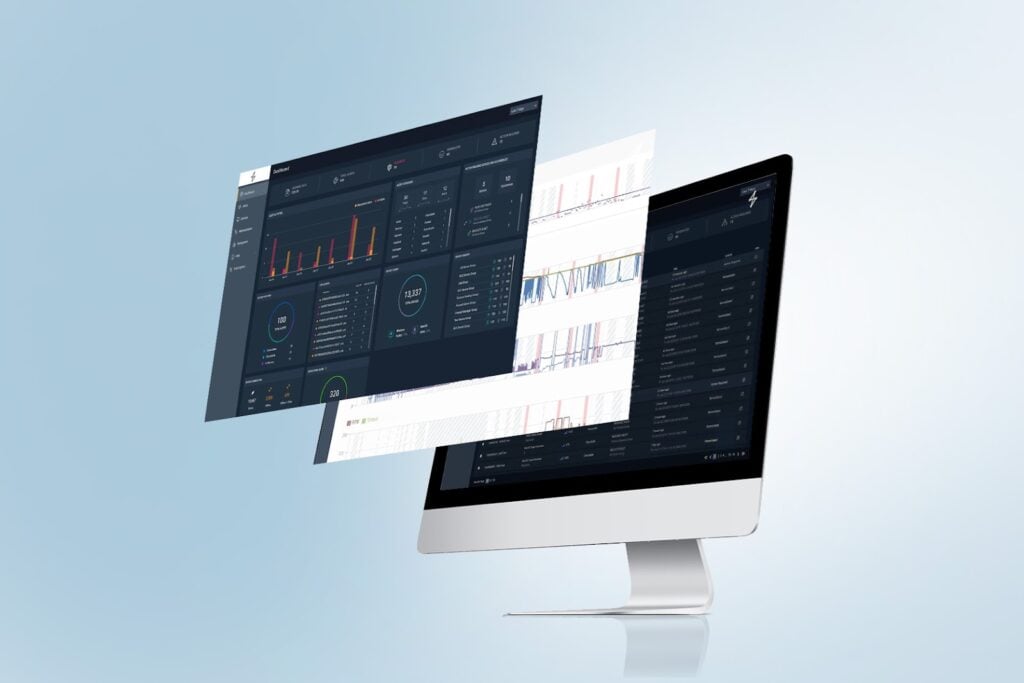By 2018, significant advancements in drones, air taxis, and other unmanned aircraft were underway, but the industry needed a comprehensive system to safely integrate unmanned flights into shared airspace to facilitate the execution of autonomous operations at scale. And so, in November of that year, Boeing and SparkCognition announced the formation of a bold new aviation joint venture to be known as SkyGrid. This company would power the next generation of aviation.
Based in Austin, Texas, SkyGrid is in the business of conceiving and developing software that ensures the safe, secure integration of autonomous cargo and passenger air vehicles in the global airspace. SkyGrid’s platform goes well beyond ordinary unmanned aircraft systems (UAS) traffic management (UTM) by using blockchain technology, AI-enabled dynamic traffic routing, data analytics, and cybersecurity features. As a result, SkyGrid customers can safely perform a broad range of missions and services using UAS, including package delivery, industrial inspections, emergency assistance, and, ultimately, human transport and air taxi services.
SkyGrid’s Chief Strategy Officer, Zehra Akbar, has been a part of the firm since its inception in 2018. She points to the swift pace of development, as well as the need to work closely with partners like NASA and Raytheon. “It’s a huge challenge,” she says, “not just for us but for the entire aerospace industry. Partnering with industry leaders vastly increases our effectiveness. There is no way one company can do this alone.”
The SkyGrid customer base includes three main groups: Part 107 pilots, enterprises, and airspace authorities/government agencies. SkyGrid products support the full range of UAV operating systems, e.g., iOS, Android, and Web, in order to serve them. Enterprise customers, in particular, span an immense range, from sole practitioners selling aerial real estate photography to large utilities performing inspections of complex assets like oil pipelines and electric transmission lines.
“Our goal,” says Akbar, “is to provide operators with visibility into past, present, and predicted/future airspace scenarios. Our AI-powered mapping capability provides 2D and 3D layer presentations, and includes flight restrictions and ground obstacles, facilitating system airspace awareness and enabling operators to generate optimal flight paths based on mission criteria, vehicle performance, distances, and mission types.”
In addition to routing and deconflicting technology that adapts to UAS flights in real-time to avoid hazards like nearby aircraft, tall structures, and terrain features, SkyGrid’s platform also enables UAS fleet management. This allows commercial drone operators to more cost-effectively manage all of their aerial assets, including diagnosing vehicle performance across the fleet, analyzing drone sensor performance, and predicting maintenance needs.
SkyGrid’s features include the ability to enter drone operational performance specifications directly into the software—for example, virtual geofences—and to integrate these with existing safety protocols that prohibit scenarios such as drone flight paths that might enter into restricted airspace.
“Our software interacts directly with UAS manufacturer software development kits (SDKs),” Akbar says, “to ensure that planned drone missions not only do not violate any standing rules but also do not exceed design specifications like maximum range, altitude, or payload of the vehicle. In addition, our implementation of blockchain technology ensures a secure and unimpeachable record of all drone activity in the event of an incident and subsequent investigation.”
SkyGrid’s blockchain technology also enables maintenance activity (both historical and scheduled) to become an integral part of each drone’s record so that, for example, drones that have passed mandatory maintenance dates are precluded from taking part in missions. Every flight record is linked to every other flight record so that a comprehensive record of activity for each UAS is available.
SkyGrid’s AerialOS product, launched earlier this year, supports UAS use worldwide. It includes global microweather maps and sector-by-sector grid maps of obstacles, restricted airspaces, and other things UAS operators need to know about. Additionally, SkyGrid is a Low-Altitude Authorization and Notification (LAANC) authorized provider through the FAA, providing clearances to fly drone missions in certain areas.
“A big part of our job, particularly on the marketing side,” Akbar says, “is collaboration, not just with manufacturers and regulators, but with schools and communities to provide insights about drones and how they will increasingly impact our everyday lives. We are also working closely with air taxi aircraft like WISK in anticipation of their services being available in the near future.”
Offering his perspective on the future of UTM airspace management and SkyGrid’s role in that evolving landscape, Boeing NeXt vice president/general manager and SparkCognition Board Member Steve Nordlund said, “The Boeing and SparkCognition partnership is unmatched in the industry today. SkyGrid is building the digital infrastructure that will make safe, seamless commercial and personal transport possible for billions of people around the world.”
Amir Husain, CEO and founder of SparkCognition, echoed that sentiment.
“SkyGrid merges expertise in AI, blockchain, security, and aviation to deliver breakthrough technological advancements for the rapidly-growing urban aerial mobility industry. By offering scalable and robust capabilities in a single, integrated framework, SkyGrid will make large-scale air vehicle applications more practical and accessible.”
To learn more about SkyGrid, visit the company website.
















